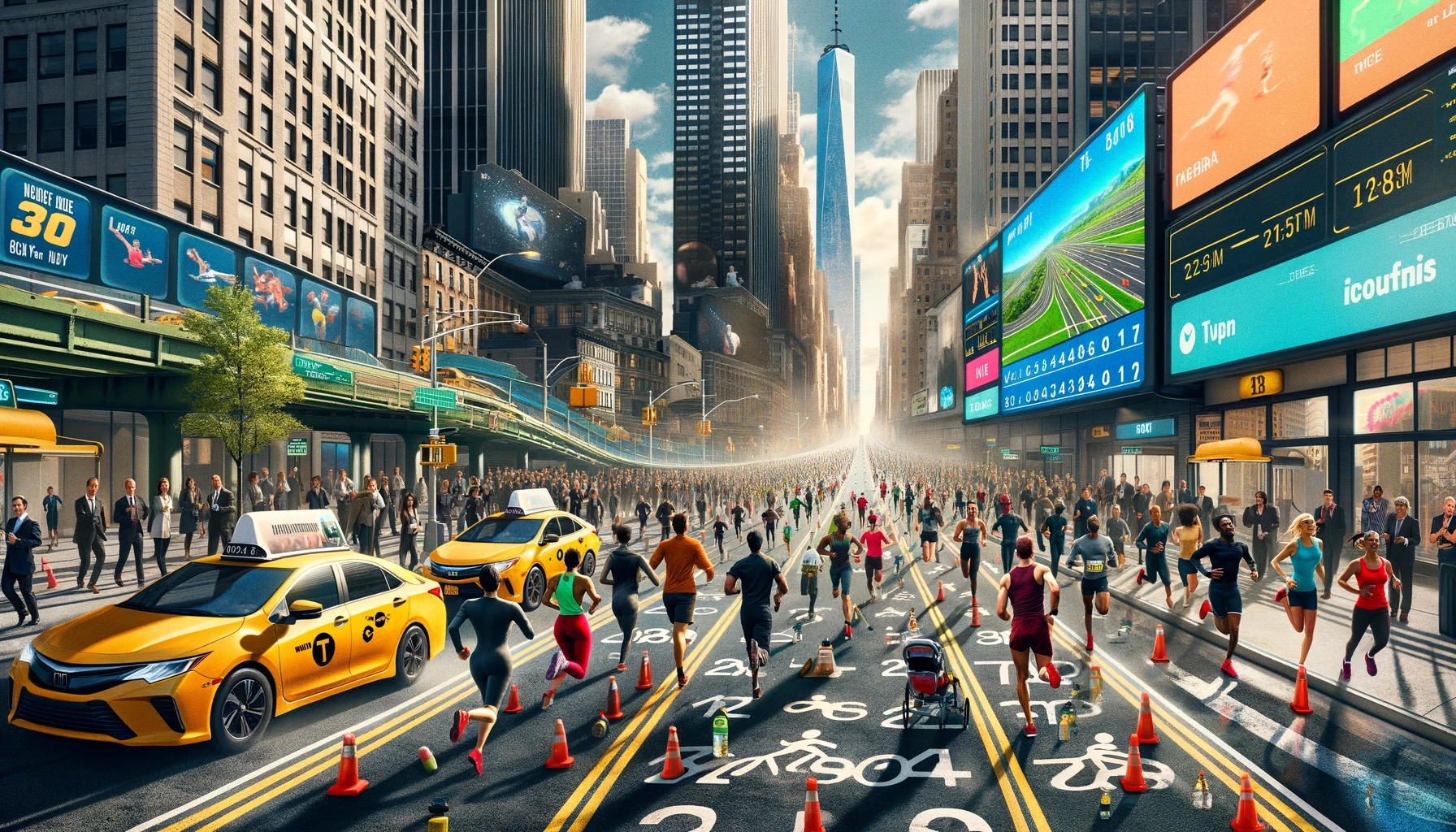From Traffic Jams to Running Clans – Extended Edition
The recent announcement by the Mayor of New York City to turn marathon running into the city’s primary mode of transport has certainly raised eyebrows and heart rates alike. Not content with the tedious stop-and-go traffic, the mayor’s “The Great Run-Commute Experiment” looks to elevate the commuting experience—quite literally—by taking it to the streets… running.
When Bustling Boulevards Become Tracks
Envision the erstwhile scene: cars honking, buses belching out exhaust, cyclists weaving through the morass. Now, picture a distinct departure from that cacophony, as the sounds of thousands of running shoes hitting the pavement in unison become the new morning chorus. The mayor stood at that once-infamous traffic choke point and proudly declared, “Why sit in traffic when you can sprint through it?” His vision goes beyond the morning jog, proposing a radical swap from the humdrum of vehicle queues to vibrant running conga lines.
The Sneaker Solution Expanded
New York has always been the epicenter of trends, and with the city’s fashion sense in mind, the mayor’s office has taken a leap forward with a partnership with leading sneaker brands to introduce “commuter kicks.” More than just footwear, these technologically advanced sneakers are at the intersection of connectivity, utility, and fitness—boasting WiFi for updates on the go, phone chargers for those ever-draining batteries, and an odometer to ensure every step equates to tax credits. Critics have been quick to lampoon these high-endurance shoes as a quirky New York accessory built for the “marathon” lifestyle.
More Than A Marathon on Marathon Mondays
The bold “Marathon Mondays” initiative is the pièce de résistance of the plan, where every Monday could see thousands of New Yorkers embark on a mass run to their workplaces. It’s been portrayed as an energizing routine to jumpstart the workweek while also addressing environmental issues. Amid talks of fostering community spirit and physical fitness, critics voice concerns over palpable issues such as the trials of transitioning from track stars to office professionals, and whether the city’s pathways can accommodate a new kind of rush hour.
Infrastructure Overhaul and Beyond
Imagine the sheer scale of infrastructural metamorphosis required to facilitate this new mode of transit: thoroughfares once lined with taxis are now graced with hydration stations and brisk lanes are accorded for daring dashes. City planners must re-envision parking garages as personal prep zones, complete with lockers and showers. The daily race to the office could be a public spectacle where “sprint sectors” add a competitive twist to the morning monotony.
Public Response and Evolving the Pilot Program
The diverse public opinion is a testament to New York’s character—some champion the inventive approach, while others criticize it as whimsical and out of step with reality. Yet, New Yorkers are known for their indomitable spirit, and the financial district’s cohort of volunteer “commute-runners” may well be the pioneers of a new urban movement. With “Pavement Pioneers” set to become the zeitgeist, the pilot program symbolizes a possible shift in urban mobility, with running shoes on the starting blocks ready to accelerate into the future.

